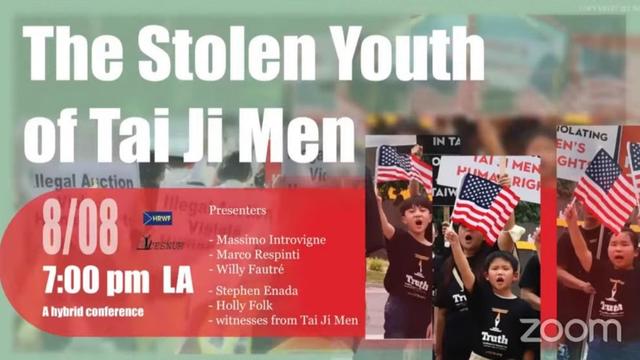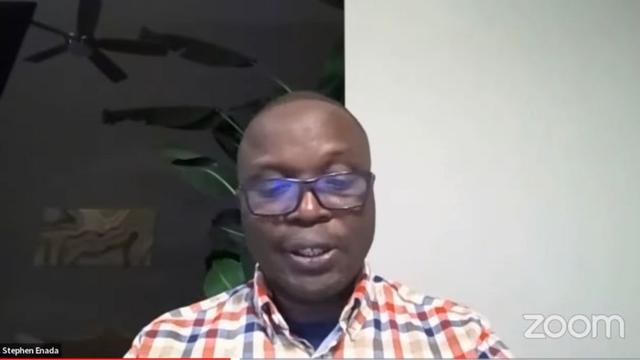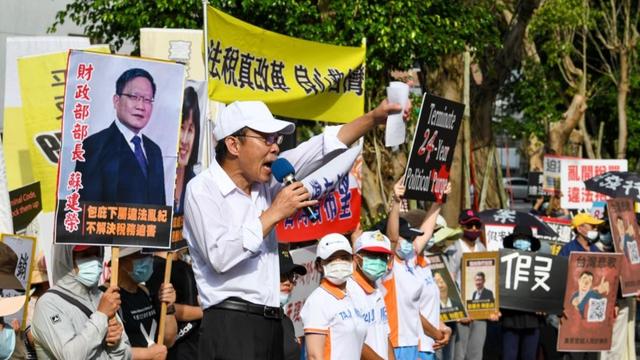Taiwanese students in American universities and others who are in a position to help should be mobilized in favor of Tai Ji Men.
by Stephen S. Enada*
*A paper presented at the hybrid seminar “The Stolen Youth of Tai Ji Men,” co-organized by CESNUR and Human Rights Without Frontiers on August 8, 2022, in Walnut, California, in sight of the UN International Youth Day of August 12.

The United Nations International Youth Day is a very important day of observance for the youth and for many youth organizations across the globe. This year’s theme is “Intergenerational Solidarity”—this should be the rallying cry and the pressure point for every youth across the world. Young women and men should rise up and preserve the culture of rights and dignity of those whose rights are trampled upon by state actors that have manipulated the system to suppress the rights of others.
When we talk about intergenerational solidarity, how does this address the issue of the Tai Ji Men case? The Tai Ji Men dizi have been denied their constitutional rights over more than two decades. There is a lack of will to act by powerful elite groups across the world, and the crime against Tai Ji Men has been largely ignored. I also think that the missing link to consolidate the intergenerational solidarity amongst youth across board is a lack of communication, information sharing, and network building.
I would like to propose a model that I think can help bring about action through intergenerational solidarity specific to the Tai Ji Men case: Citizen to Citizen Diplomacy.

Traditionally, diplomacy always occurs between two different countries. But in this case, it will be citizens of Taiwan who are in Taiwan, or Taiwanese residing outside Taiwan who will begin to build solidarity with other citizens of host nations, and highlight the issue and the plight of the Tai Ji Men case.
There are many Taiwanese students scattered across colleges in Europe and North America. We can research and identify if any of them is interested in the Tai Ji Men case, and also determine who presumptively we think should be interested. It means we have to organize sessions to first educate them about the Tai Ji Men case. This should be like religious evangelism scattered across campuses and schools around the world where there are Taiwanese students. If all of us Tai Ji Men advocates agree with this project, we should start immediately.
Tai Ji Men is blessed with advocates who are professionals across the United States and Europe. We may begin to invite our friends who are citizens of the United States, share this problem with them, and ask them to amplify it and send their members of Congress and senators letter to this effect.

The last suggestion will be to identify advocates of Tai Ji Men in Taiwan and connect them with individuals, human rights organizations, and churches in the United States to explain the injustice meted to the Tai Ji Men by the Taiwanese government. The victims will have other citizens listening to them, and the friendship and bonds that will be created from this relationship will cascade into a momentum, and expose the Taiwanese government’s abuse of Tai Ji Men across the United States. What the Taiwanese government will not want in this moment is for groups to expose their mistakes in a case where a court judgment has declared Tai Ji Men innocent of any crime, including tax evasion, yet harassment has continued.
I feel committed to Citizen to Citizen Diplomacy in this regard. I suggest that victims speak with other citizens across continents, and force the hand of the Taiwanese government and of specific institutions that breached the law and should be named and sanctioned.
Source: Bitter Winter

